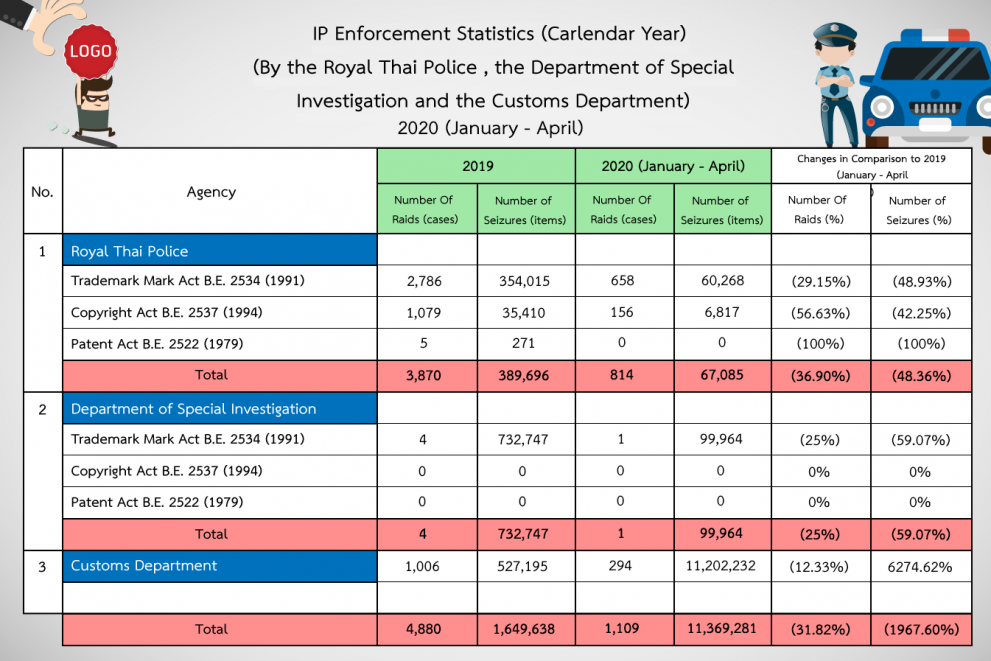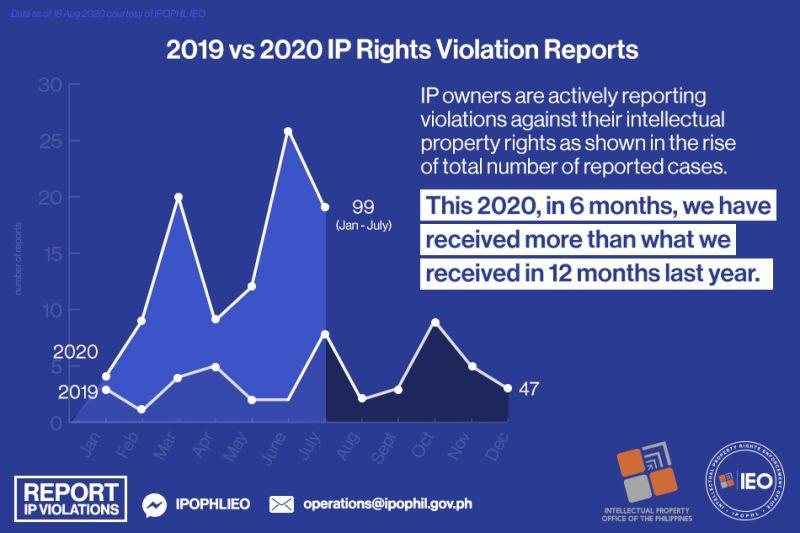WRITTEN BY XUAN NGUYEN
Due to the social distancing measures imposed during the Covid-19 pandemic, people are massively relying on the internet for both their work and their leisure activities. Online shopping has dominated the market as a result of quarantine and isolation.
The Covid-19 emergency has engendered many challenges for intellectual property (IP) protection thanks to the rocketing increase of counterfeit goods being offered for sale on the internet. This is especially prevalent among products in high demand, such as facemasks, hand sanitisers, antiviral medication, vitamins, pharmaceuticals, foods, beverages, household products, electronics, DIY tools, entertainment technology, etc.
In this article, we present some updated statistics reflecting the alarming rise in IP infringement during the crisis in some South-East Asian countries.
Thailand
According to the latest IP Enforcement Statistics for Thailand, the number of raids and seizures between January and April 2020, compared to the same period in the previous year, has risen acutely (by 31.82% and 1 967.6%, respectively).

Philippines
The Intellectual Property Office of the Philippines (IPOPHL) recently published 2019 vs 2020 IP rights violation data showing the dramatic surge in complaints that they received in the first 6 months of 2020 compared to the previous year.

Suggestions for protecting your IP during the crisis
- Proactively monitor e-commerce and social media platforms. As counterfeiters overwhelming use online platforms to sell their products, regularly checking to detect fakes and initiating early interventions will save you a lot of money and time. Online shopping makes payments cashless; this also enables companies to easily track and investigate the sources of fake goods. This is a big advantage when it comes to stamping out counterfeiting.
- Conduct online trainings and encourage the community to report fakes. Providing trainings to consumers on how to distinguish between authentic products and fake ones, and on where they can buy the real ones, is worthwhile. Companies should also encourage the community to report cases of counterfeiting and make online tools available so people can easily submit complaints.
- Take-down notices. If you have reliable evidence of counterfeit goods being sold on e-commerce or social media platforms, prepare a take-down notice (with the supporting documents necessary) asking the operators to immediately remove the infringing products.
- Inform the competent authorities. For larger cases, you can consider to inform the competent authorities to promptly stop the infringement, for example by blocking the importation of the counterfeit goods or by seizing them.
- Seek advice from local IP experts. It is always advisable to consult local experts with experience in enforcement to be sure you are doing things the right way; in South-East Asia, neither the law nor business practices are the same as in Europe.
The South-East Asia IPR SME Helpdesk is an EU initiative that provides free, practical IPR advice to European SMEs in South-East Asia. EU companies can send questions to question southeastasia-iprhelpdesk [dot] eu (question[at]southeastasia-iprhelpdesk[dot]eu) and receive a reply within 3 working days.
southeastasia-iprhelpdesk [dot] eu (question[at]southeastasia-iprhelpdesk[dot]eu) and receive a reply within 3 working days.
Details
- Publication date
- 3 September 2020
- Author
- Executive Agency for Small and Medium-sized Enterprises
